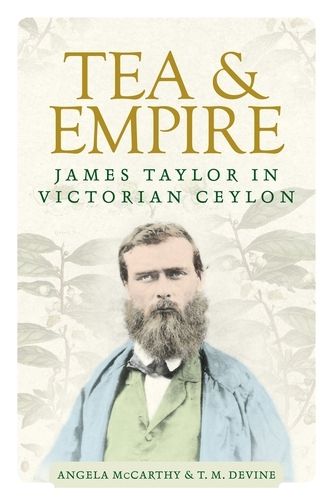Readings Newsletter
Become a Readings Member to make your shopping experience even easier.
Sign in or sign up for free!
You’re not far away from qualifying for FREE standard shipping within Australia
You’ve qualified for FREE standard shipping within Australia
The cart is loading…






This book brings to life for the first time the remarkable story of James Taylor, ‘father of the Ceylon tea enterprise’ in the nineteenth century. Publicly celebrated in Sri Lanka for his efforts in transforming the country’s economy and shaping the world’s drinking habits, Taylor died in disgrace and remains unknown to the present day in his native Scotland. Using a unique archive of Taylor’s letters written over a forty-year period, Angela McCarthy and Tom Devine provide an unusually detailed reconstruction of a British planter’s life in Asia at the high noon of empire.
As well as charting the development of Ceylon’s key commodities in the nineteenth century, the book examines the dark side of planting life including violence and conflict, oppression and despair. A range of other fascinating themes are evocatively examined, including graphic depictions of the Indian Mutiny, ‘race’ and ethnicity, migration, environmental transformation, cross-cultural contact, and emotional ties to home. – .
$9.00 standard shipping within Australia
FREE standard shipping within Australia for orders over $100.00
Express & International shipping calculated at checkout
This book brings to life for the first time the remarkable story of James Taylor, ‘father of the Ceylon tea enterprise’ in the nineteenth century. Publicly celebrated in Sri Lanka for his efforts in transforming the country’s economy and shaping the world’s drinking habits, Taylor died in disgrace and remains unknown to the present day in his native Scotland. Using a unique archive of Taylor’s letters written over a forty-year period, Angela McCarthy and Tom Devine provide an unusually detailed reconstruction of a British planter’s life in Asia at the high noon of empire.
As well as charting the development of Ceylon’s key commodities in the nineteenth century, the book examines the dark side of planting life including violence and conflict, oppression and despair. A range of other fascinating themes are evocatively examined, including graphic depictions of the Indian Mutiny, ‘race’ and ethnicity, migration, environmental transformation, cross-cultural contact, and emotional ties to home. – .